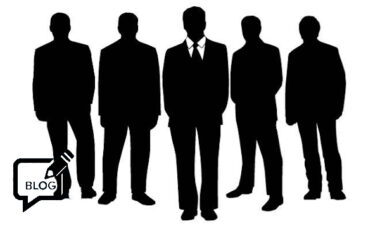 To describe the World Health Organization (WHO) as a shady society of “men in dark suits”, or to imply that it dances to the tune of China and Russia – the West’s current favourite baddies – is, frankly, poppycock. Yet that is a recurring theme of a number of social media campaigns dedicated to rubbishing the WHO’s seemingly implacable opposition to vaping.
To describe the World Health Organization (WHO) as a shady society of “men in dark suits”, or to imply that it dances to the tune of China and Russia – the West’s current favourite baddies – is, frankly, poppycock. Yet that is a recurring theme of a number of social media campaigns dedicated to rubbishing the WHO’s seemingly implacable opposition to vaping.
You may, of course, disagree with WHO director general Tedros Adhanom Ghebreyesus’s recent claim that e-cigarettes are “a trap” to lure children into a lifetime of nicotine dependence. That is an opinion, and one held by a wide and perhaps increasing number of people around the world. An opinion some sections of the vaping industry – notably, certain Chinese companies in particular – do nothing to dispel.
But take a look at the WHO’s online Q&A on e-cigarettes, and you will find nothing any level-headed, genuinely objective observer could take issue with.
The overall tone is reserved, as it should be. The WHO, after all, has nothing to sell or advertise. And while some may think it could have been more positive about vaping as an alternative to tobacco, you’d be hard put to deny the truth of this: “Both tobacco products and ENDS pose risks to health. The safest approach is not to use either.”
Or this: “Evidence reveals that these products [e-cigarettes] are harmful to health and are not safe. However, it is too early to provide a clear answer on the long-term impact of using them or being exposed to them.”
Too early, that is, to be quite as dogmatic as many are, whether promoting e-cigarettes as a remedy for all the evils of smoking or condemning them utterly.
‘Grassroots’ – or astroturf campaigns?
The real argument is between those who believe in vaping as a harm-reduction alternative for those who would otherwise smoke, and those who take the total abstentionist view. While the WHO is clearly in the latter camp, ECigIntelligence does not align itself firmly with either (though we have friends in both).
So who is behind those Facebook and Twitter attacks on the WHO’s integrity? If you accept the conclusions of an investigation published in last weekend’s Observer newspaper, you might think the description “shady society of men in dark suits” was more applicable there.
The report begins: “A series of ‘grassroots’ campaigns telling UK e-cigarette users they are under attack and urging them to ‘stand up for their rights’ by opposing new vaping regulations are being run by secretive lobby groups with links to Big Tobacco.”
It goes on to detail campaigns such as #BackVapingSaveLives, which it links to a secretive right-wing think tank whose sponsors include Japan Tobacco International (JTI). And Say No To WHO, set up by an anti-EU pressure group run by a former Brexit Party politician and “veteran campaigner against tobacco control”.
The WHO, not surprisingly, says all these campaigns are spreading “misinformation”. While Martin McKee, president of the British Medical Association, says they appear to be an attempt to “undermine public health” by organisations that “conceal their funding and present themselves as the voice of ordinary people”.
You could see all this as typical of the disputes over the blurred lines between “reality” and “fake news” that are endemic to the internet. A sceptical person might also think the more extreme pro-vaping (or anti-WHO) propaganda – like the blandishments of certain less responsible vape manufacturers and sellers – could ultimately prove counterproductive.
– Aidan Semmens ECigIntelligence staff
Image: Vector Portal






